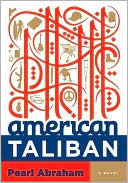
American Taliban: A Novel PDF
Preview American Taliban: A Novel
Pearl Abraham on *American Taliban*
On September 8th, 2001, I was in Mantova, Italy for the Festival Litteratura. Between engagements, on a bicycle to see this medieval city, I noticed a poster for a "qabala" exhibit. I tried following these strangely intermittent signs, came upon dead ends, retraced my steps, and tried again, an experience out of a Borges story. The next day, directions in hand, I got to see the works of renowned Kabbalists whose names I'd known since childhood, whose complex of ideas were bound up in the rituals and customs of the Hasidic life I'd lived, and in the novel I was then writing. On my way out, I purchased the catalog to the exhibition and read about the Mantova library's priceless collection. So when at dinner my Italian publisher asked whether there was anything I wanted to see or do, an offer they made each of their participating authors, I was prepared. But the library was under construction, the collection locked in a vault. Borges again. Later that day, the phone rang. The mayor of Mantova would meet us at the vault with the key.
I arrived at Newark Airport late evening, in time to teach my 9 a.m. craft class at Sarah Lawrence. In the morning, I drove up the Henry Hudson. It was a brilliantly blue fall day, first day of classes. On the radio, the traffic report was interrupted for a story about a plane accident.
Five minutes into the session, cell phones started ringing. Then came a knock at the door. Classes were cancelled. The city shut down. I couldn't go home. On the lumpy sofa in the attic office of Sarah Lawrence's Writing Program, I tried sleeping off my jet lag, but I couldn't bring myself to turn off the radio. Announcers repeated what they knew more times than I could count, rehearsing the blow-by-blow of an event no one understood. Yet.
In the weeks that followed Americans rallied around the flag, a nationalism that both soothed and frightened simultaneously. With this surge came, as it usually does, rage and racism and the demonization of the other. American Muslims became afraid. And then, in November, a strange phenom emerged: an American-born, American-bred Taliban. The fury that John Walker Lindh's story elicited was extreme, and in that environment he didn't have a chance. Lindh wasn't the only one of these strange hybrids, both American and Taliban. Yasir Hamdi, Adam Gadahn and others emerged later.
The journeys of these young men struck me as variations on the story I was then finishing. The protagonist of The Seventh Beggar becomes interested in Gnostic meditations on the Tetragrammaton (YHWH), in which Jesus too is said to have engaged, as a way to tap into higher powers. Lindh too was an idealistic seeker, and his tragedy, an accident of being in the wrong place at the wrong time, haunted me.
Americans were asking how an educated young man from a well-to-do family could end up fighting a jihad that had nothing to do with his family or his country, and journalists tried answering them. The more interesting question, it seemed to me, was not HOW and WHAT, but WHY, E. M. Forster’s differentiation between story and plot. And for exploring questions of causality, the novel is the perfect form.
(Photo © Christine Pabst)
Abraham (The Seventh Beggar) sends a young man of privilege from Washington. D.C.. on a spiritual quest that takes him from surfing the Outer Banks to encountering jihad in Pakistan. It's 2000, and John Jude Parish is an 18-year-old surfer with a nose for exploring spirituality. He reads about Bob Dylan, digests the Tao, and corresponds online with Arabic friends about Islam. When he breaks a leg, he uses his time of enforced immobility to study Sufi poetry, which leads him, eventually, to Brooklyn, where he befriends a young man from Pakistan who suggests going abroad to learn more about Muslim culture. Once in Pakistan, each small step takes him closer to becoming radicalized. His journey toward Islam is not one of disenchantment, but of enlightenment, described in an evocative prose that mimics the confusion and grandeur of a young man driven by ideals. The novel is at its best when John's questing is an earnest, balanced search for meaning, though when Abraham shifts her focus to John's mother late in the book, the story flattens. Mostly, the book is excellent—considered, magnetic, surprising—but the fizzled ending is a major disappointment. (Apr.)
Copyright © Reed Business Information, a division of Reed Elsevier Inc. All rights reserved.
